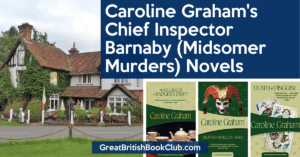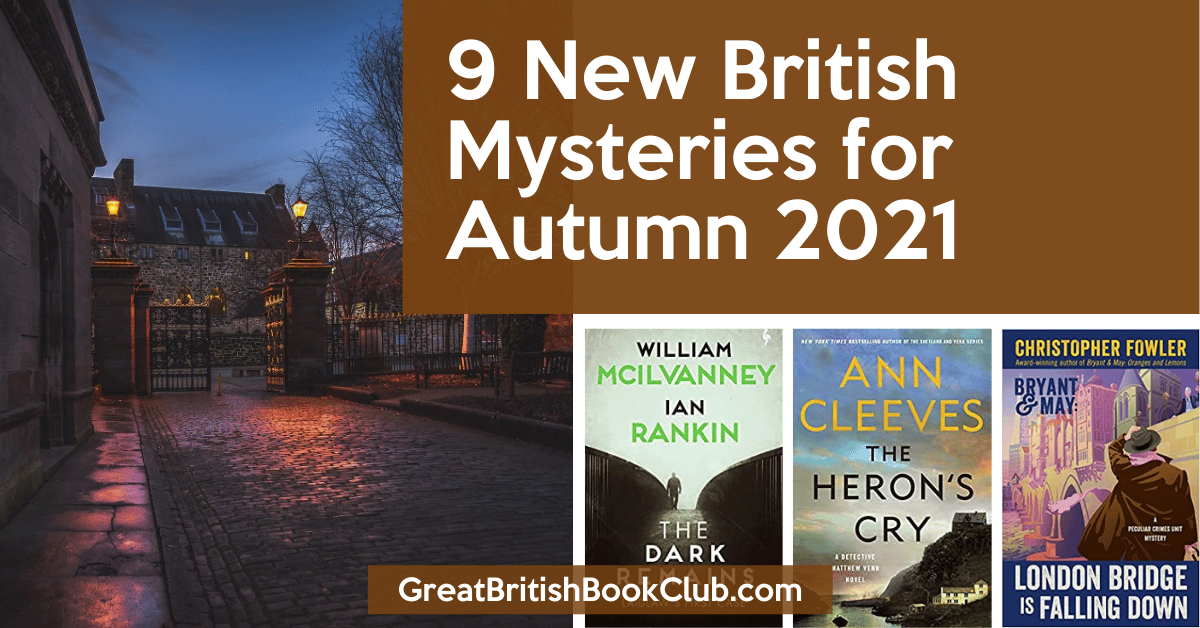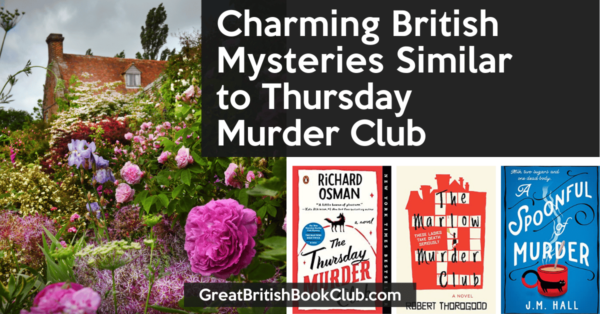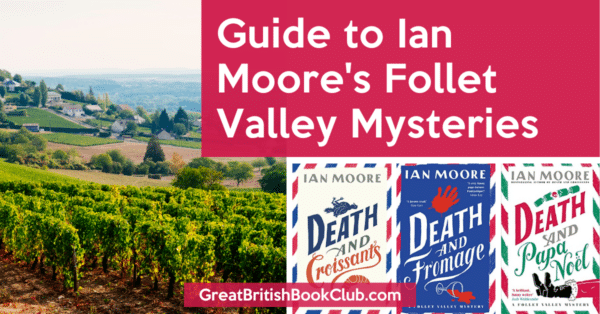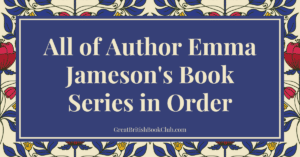10 of the Best Agatha Christie Books – and Her Best Selling Novel
In some cases, we earn commissions from affiliate links in our posts.
The question of which of Agatha Christie's novels were best is one most mystery fans could argue about for hours. Should they be judged on style? Her deftness at hiding the identity of the killer? Public reviews by her contemporaries – or what about reviews by modern mystery fans? Or sales figures?
For us, we'll listen to Dame Agatha herself. A few years before her death in 1976, she offered her own list of her top 10 books. Careful to qualify the list, she said at the time:
My own ten would certainly vary from time to time because every now and then I re-read an early book for some particular reason, to answer a question that has been asked me perhaps, and then I alter my opinion—sometimes thinking it is much better than I thought it was—or not so good as I had thought.
This statement alone is interesting, as many authors prefer not to re-read their own works, lest it get in their heads and make it more difficult to produce new work. It's also interesting that in spite of her renowned hatred of detective Hercule Poirot, she doesn't exclude him from the list.
Finally, we found it interesting that Christie's own top 10 list includes many of her best selling (and most adapted) works. Authors don't always agree with where the general public puts their money, but it probably shouldn't be much of a surprise that a best-selling author like Christie had a sense of when she was getting it “right”.
Dame Agatha Christie's Best Novels – & Her Best Selling Novel
We've arranged the list below in no particular order except that we've placed her best-selling novel at the top. Though many authors are dismayed to find a mismatch between the novels they feel were best and which ones sell the best, it's interesting that Christie placed her best-selling novel in her own top ten.
It's also interesting to note that although Christie published work in six different decades and continued to produce work right up until the year of her death, she only lists one novel from the 60s and 70s (though in fairness, she wrote the list in 1972, so she hadn't produced much in the 70s at that point). It appears she felt her best work was done during the 30s and 40s, with 60% of the listed titles coming from that period.
And Then There Were None (1939)

One of the best-selling books of all time, And Then There Were None was first published in 1939 under a title that's now considered wildly inappropriate (Ten Little N****rs, after a very old children's counting song). It's also been known as Ten Little Indians at some points.
The story follows a group of 8 people who've been invited to an isolated island off the coast of Devon. They're met by the butler and housekeeper, who explain that the hosts haven't yet arrived, but they've left instructions for everyone to proceed.
Over the course of their time together, guests are murdered one by one. Christie said the novel used “a difficult technique which was a challenge”, adding “I enjoyed it, and I think dealt with it satisfactorily.”
Get it: Kindle | Audible | Paperback | Bookshop.org (supports independent bookshops)
Adaptations: 1945 Film | 2015 TV
The Moving Finger (1943)

Shortly before she created her top ten list, Christie re-read this Miss Marple tale. It's the fourth of the mysteries in which Miss Marple appears, and her role in this one is surprisingly small. It's not until the end that Marple appears, showing up after the police fail.
The book is set in the Devon town of Lymstock, and it opens as a couple of siblings have moved in. Poison pen letters accuse them of being lovers rather than siblings, and when they seek out the author, they learn that many in the town have received similar letters. Soon after, a local lawyer's wife is found murdered, and the letters become part of the investigation.
Get it: Kindle | Audible | Paperback | Bookshop.org (supports independent bookshops)
Crooked House (1949)

Of this novel, Christie said, “Writing Crooked House was pure pleasure and I feel justified in my belief that it is one of my best. I found a study of a certain family interesting to explore.”
The novel brings us close to the Leonides, a large and seemingly content family living together in a sprawling mansion called Three Gables. When the patriarch, Aristide, is killed with an injection, his much-younger widow falls under suspicion. As fingers and pointed and the investigation continues, however, we learn she's not the only one with a compelling motive.
Get it: Kindle | Audible | Paperback | Bookshop.org (supports independent bookshops)
Adaptations: 2017 film | BBC Radio 4
Towards Zero (1944)

Soon after a house party gathers at the seaside home of an elderly woman, Lady Tressilian, one of her friends dies. It seems to be natural causes, but it's not long before the plot unfolds – involving accusations of theft, a failed suicide attempt, and a famous tennis player.
Christie counted this one among her favourites with the comment, “I found it interesting to work on the idea of people from different places coming towards a murder, instead of starting with the murder and working from that.”
Get it: Kindle | Audible | Paperback | Bookshop.org (supports independent bookshops)
Ordeal by Innocence (1958)

When a mother of five is murdered, her son is wrongfully convicted of the crime. After a short time in prison, he dies.
A few years later, a man shows up at the family home, claiming the son was innocent all along – but due to a concussion and memory loss, he was unable to come forward any sooner.
Now, the family has to contend with the fact that there's a murderer in their midst.
Get it: Kindle | Audible | Paperback | Bookshop.org (supports independent bookshops)
Adaptations: 2018 miniseries
A Murder is Announced (1950)

In a local paper, an unassuming advertisement announces the unthinkable: “A murder is announced and will take place on Friday, 29 October, at Little Paddocks, at 6.30 pm. Friends accept this, the only intimation.”
Sure enough, the villagers arrive on cue, the lights go out, and there's a murder. Of the novel, Christie said, “I thought all the characters interesting to write about and felt I knew them quite well by the time the book was finished.” It's an interesting comment, given that the most common critique of her writing is that the characters are uncomplicated and flat.
This was the very first Miss Marple story to be adapted for television, with Gracie Fields starring as Miss Marple, opposite Roger Moore as Patrick Simmons.
Get it: Kindle | Audible | Paperback | Bookshop.org (supports independent bookshops)
Endless Night (1967)

After a chance meeting with an heiress, chauffeur Michael Rogers thinks a better life may finally be within reach. He'll marry her, buy his dream property, and life will be good.
Unfortunately, he makes the mistake of ignoring an old woman's warning about an ancient curse on his little piece of heaven. Before too long, the fatal accidents begin.
Though certain plot elements were borrowed from Christie's earlier works, this gothic-style suspense received rave reviews. Christie herself called it “my own favourite at present”. It's also interesting to note that while she normally spent 3-4 months writing each book, this one took just six weeks.
Get it: Kindle | Audible | Paperback | Bookshop.org (supports independent bookshops)
The Murder of Roger Ackroyd (1926)

Christie called this one “a general favourite”, and it was her third novel to feature Belgian detective Hercule Poirot. In the peaceful village of King's Abbot, a wealthy widow commits suicide – only to have it followed up the next day by the stabbing of her fiance, Roger Ackroyd.
The retired Poirot turns up and agrees to step out of retirement to help bring the case to a swift conclusion. This was the first novel for which Christie received serious recognition.
Get it: Kindle | Audible | Paperback | Bookshop.org (supports independent bookshops)
Adaptations: 1939 Radio
Murder on the Orient Express (1934)

Christie placed this novel among her favourites because it was “a new idea for a plot”. The tenth Hercule Poirot book, it takes place on the Orient Express train after it's stopped due to a snowstorm. There's a murder on board, but luckily, there's also a clever Belgian detective around to solve it.
Get it: Kindle | Audible | Paperback | Bookshop.org (supports independent bookshops)
Adaptations:
Thirteen Problems (1932)

Though not strictly a novel, Christie held this collection of short stories in high regard. The collection marks the very first appearance of Miss Marple, the quiet spinster who uses her brains to solve crimes from the sidelines.
Get it: Kindle | Audible | Paperback | Bookshop.org (supports independent bookshops)
Save it to Pinterest!

